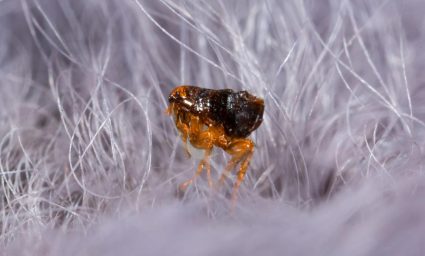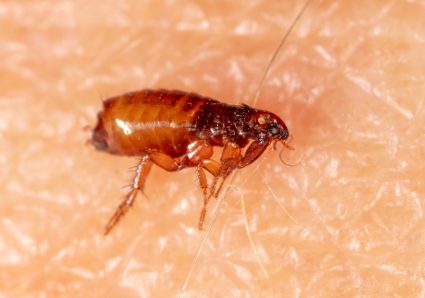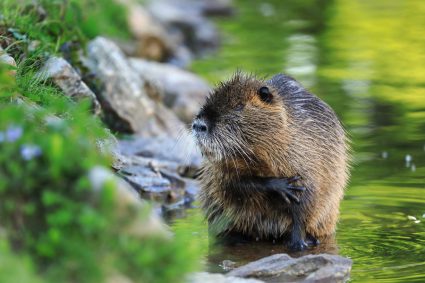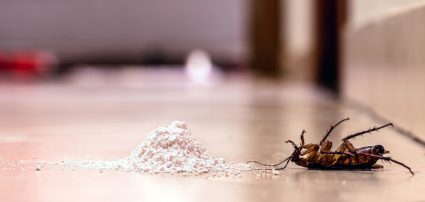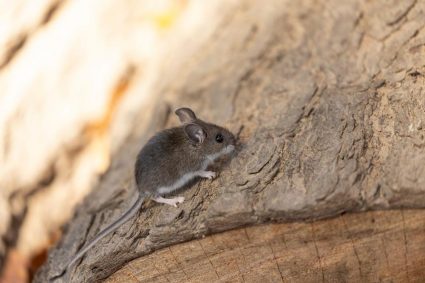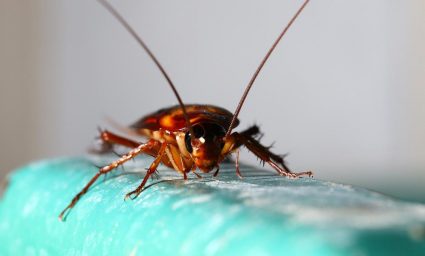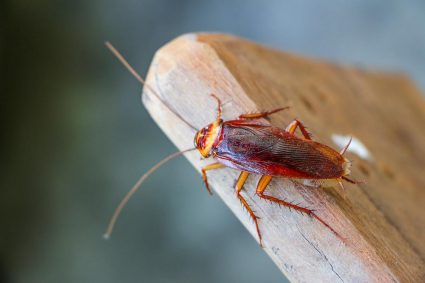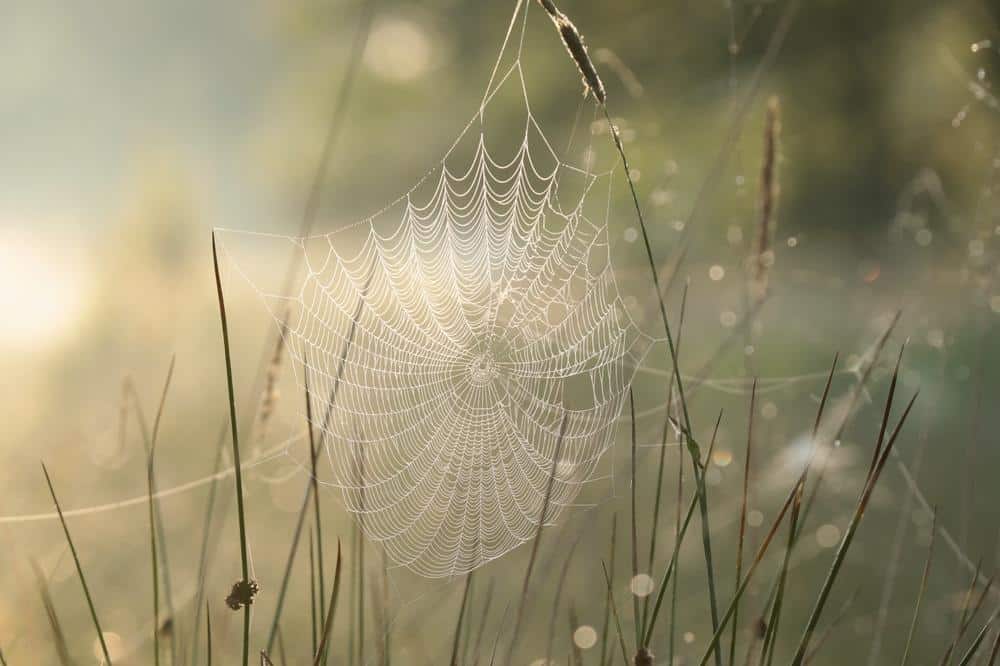
Spiders, while beneficial for controlling other pests, can sometimes become a nuisance in our outdoor spaces. Whether it’s because of their webs, their bites, or simply an innate fear, many homeowners seek ways to deter these eight-legged creatures from their yards. This comprehensive guide will explore the various strategies to keep spiders away outside.
To keep spiders away outside, consider reducing their food sources by turning off outdoor lights at night and maintaining cleanliness. You can also use natural deterrents like strongly scented plants (basil, lavender, mint, etc.), essential oils, and vinegar spray. Regular yard maintenance and minimizing moisture can also help. If these methods are not enough, there are commercial products available for spider control.
What Attracts Spiders to Outdoor Spaces?
Understanding what attracts spiders to your yard is the first step in reducing their presence. Spiders primarily gravitate towards areas with abundant food sources, making outdoor spaces with plenty of insects particularly attractive. Factors that can draw spiders include:
- Lights: Outdoor lights attract insects, which in turn attract spiders.
- Open garbage cans: Flies may gather around open or unsecured garbage cans, luring spiders.
- Food: Open food containers, crumbs, or residue on grills can provide sustenance for spiders.
- Standing water: Water in puddles, flower pots, and other containers can attract insects, which then attract spiders.
- Shelter: Outdoor furniture, planters, and other structures provide hiding spots or potential locations for spiders to build their webs.
To minimize the appeal of your outdoor space to spiders, consider turning off outdoor lights at night, maintaining cleanliness, removing standing water, and regularly sweeping away spider webs.
Effective Natural Deterrents for Spiders
Several natural deterrents can effectively repel spiders from your outdoor spaces:
- Strongly scented plants: Spiders are repelled by strong scents, making fragrant herbs and plants like basil, lavender, mint, rosemary, lemon balm, chrysanthemums, citronella grass, and lemon verbena effective deterrents.
- Essential oils: Essential oils such as peppermint, citrus, eucalyptus, citronella, cedarwood, tea tree, and lavender can repel spiders. Mix these oils with water and spray them around your outdoor area.
- Vinegar spray: A 50/50 solution of white vinegar and water can deter spiders when sprayed in areas they frequent.
- Maintaining a clean yard: Regularly mowing your lawn, trimming shrubs and trees, and removing items that could act as hiding spots for spiders can help keep them at bay.
- Minimizing moisture: Spiders are attracted to damp areas, so ensuring proper drainage and removing items where water can collect can deter them.
- Diatomaceous earth: This non-toxic powder can be sprinkled around the perimeter of your outdoor space to create a barrier that deters spiders.
The Impact of Weather and Climate
Weather and climate can significantly impact spider behavior, web-building, and prey availability. For instance, warmer weather can increase the population of flying insects, which are a primary food source for spiders. Consequently, a rise in the insect population can lead to a surge in the spider population. As climate change continues to cause temperature fluctuations, spider populations and their interactions with the environment are expected to be affected.
Plants That Repel Spiders
Certain plants are known to repel spiders due to their strong scents. These include basil, marigolds, rosemary, lavender, chrysanthemums, mint, eucalyptus, lemongrass (citronella), and lemon balm. Placing these plants near doors, windows, and other entryways can help deter spiders from entering your home.
Best Commercial Products for Spider Control
If natural deterrents aren’t enough, there are several commercial products available to keep spiders away from outdoor spaces. These include Star Brite Spider Away, EarthKind Stay Away Spiders Deterrent Pest Control Scent Pouches, TERRO T2302-6 Spider Killer Spray, and more. Always follow the manufacturer’s instructions when using these products.
Managing Outdoor Lights to Deter Spiders
Outdoor lights can indirectly attract spiders by drawing in insects. To manage this, consider turning off outdoor lights when not in use, switching to yellow or purple bulbs, repositioning exterior lights away from your home, and using warm-colored LED light bulbs.
Outdoor Cleaning and Maintenance Practices
Regular cleaning and maintenance can significantly reduce spider populations in your outdoor spaces. Sweeping and removing spider webs and egg sacs, keeping outdoor spaces organized, moving firewood and debris away from your home, trimming shrubs and tree limbs, installing tight-fitting window screens and door sweeps, and maintaining indoor humidity levels can all help keep spiders at bay.
By understanding what attracts spiders and implementing the methods mentioned above, you can effectively manage spider populations in your outdoor spaces, ensuring a pleasant and spider-free environment.
Frequently Asked Questions
How often should I spray essential oils or vinegar solution to deter spiders?
You should spray essential oils or vinegar solution once a week. However, if it rains, you may need to spray more frequently as the rain can wash away the solution.
Are there any risks associated with using diatomaceous earth?
Yes, while diatomaceous earth is non-toxic, it can cause irritation to the eyes and respiratory tract if inhaled or comes into contact with the eyes. Always wear a mask and goggles when applying it, and keep it out of reach of children and pets.
Can I use indoor lights to attract spiders away from my house?
While indoor lights may attract some insects, and consequently spiders, it’s not a recommended method. This could lead to an increase in indoor pest activity, which could result in a whole new set of problems.
Are spiders attracted to all types of light?
Spiders aren’t necessarily attracted to light itself, but to the insects that light attracts. However, research has shown that spiders are less attracted to yellow or purple lights, so using these colors for your outdoor lighting can help reduce the number of insects, and consequently spiders, in your outdoor spaces.
Will killing spiders reduce their population in my yard?
While killing individual spiders may provide temporary relief, it’s not an effective long-term solution. Spiders reproduce rapidly, so it’s better to focus on making your yard less attractive to them by using the methods mentioned in this guide.

